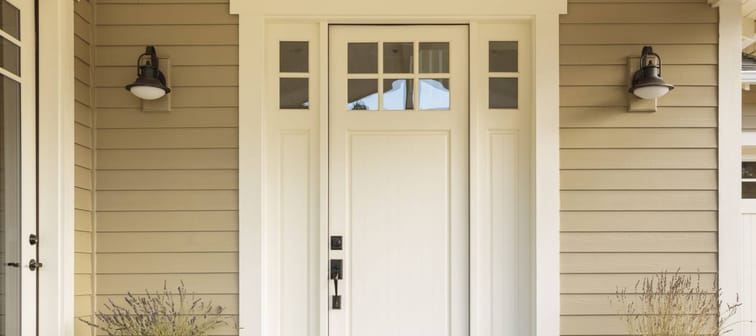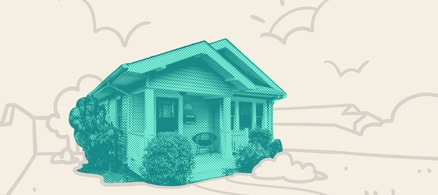Why is PMI necessary?
When a bank or other mortgage lender lends money to a homebuyer, the company is taking an enormous financial risk. The company assumes this risk because it stands to profit from the interest a buyer will pay over the course of the loan, but, with every opportunity for profit comes a risk for loss.
What if the buyer loses a job? What if he or she dies? What if the buyer just stops paying on the mortgage? In any of these events, the mortgage company will lose both the money that was lent — and the interest.
Stop overpaying for home insurance
Home insurance is an essential expense – one that can often be pricey. You can lower your monthly recurring expenses by finding a more economical alternative for home insurance.
SmartFinancial can help you do just that. SmartFinancial’s online marketplace of vetted home insurance providers allows you to quickly shop around for rates from the country’s top insurance companies, and ensure you’re paying the lowest price possible for your home insurance.
Explore better ratesHow much is PMI?
The mortgage company requires the buyer to pay PMI in order to protect itself. PMI is insurance to help the lender recover if the buyer defaults on the loan. The buyer is required to pay monthly premiums based on the cost of the home, typically up to $200 per month.
PMI is tacked onto the monthly mortgage payment. If a homeowner who pays $800 toward interest and principal every month has PMI of $150, the monthly mortgage bill will be $950.
How to avoid paying PMI
Pure and simple, you're required to pay PMI if you make a down payment that's on the small side when you buy a home.
To avoid PMI premiums, make a higher down payment. Most conventional mortgage companies require a down payment of at least 20% of the cost of the house in order to waive the PMI requirement. Companies reason that a person with enough assets to make a bigger investment when buying a home is less likely to default on the loan.
Note that some non-conventional loans never have PMI. For example, VA loans do not require any down payment and do not charge PMI.
Need cash? Tap into your home equity
As home prices have increased, the average homeowner is sitting on a record amount of home equity. Savvy homeowners are tapping into their equity to consolidate debt, pay for home improvements, or tackle unexpected expenses. Rocket Mortgage, the nation's largest mortgage lender, offers competitive rates and expert guidance.
Get StartedOther things to know about PMI
In some cases, a buyer will get separate loans to cover the cost of the home and the cost of down payment, thus avoiding PMI. This type of borrowing scheme is called a piggyback loan, but it has its own risks and benefits.
Some loans offer options where the lender will pay the PMI, rather than the buyer.
If you're already a homeowner paying PMI, rest assured it will go away when you pay off enough of the loan.
PMI will increase monthly mortgage payments, but it should not be so expensive as to make a home unaffordable. Mortgage bankers can answer specific questions about PMI.
More: Is mortgage protection insurance worth it?
Sponsored
Follow These Steps if you Want to Retire Early
Secure your financial future with a tailored plan to maximize investments, navigate taxes, and retire comfortably.
Zoe Financial is an online platform that can match you with a network of vetted fiduciary advisors who are evaluated based on their credentials, education, experience, and pricing. The best part? - there is no fee to find an advisor.







